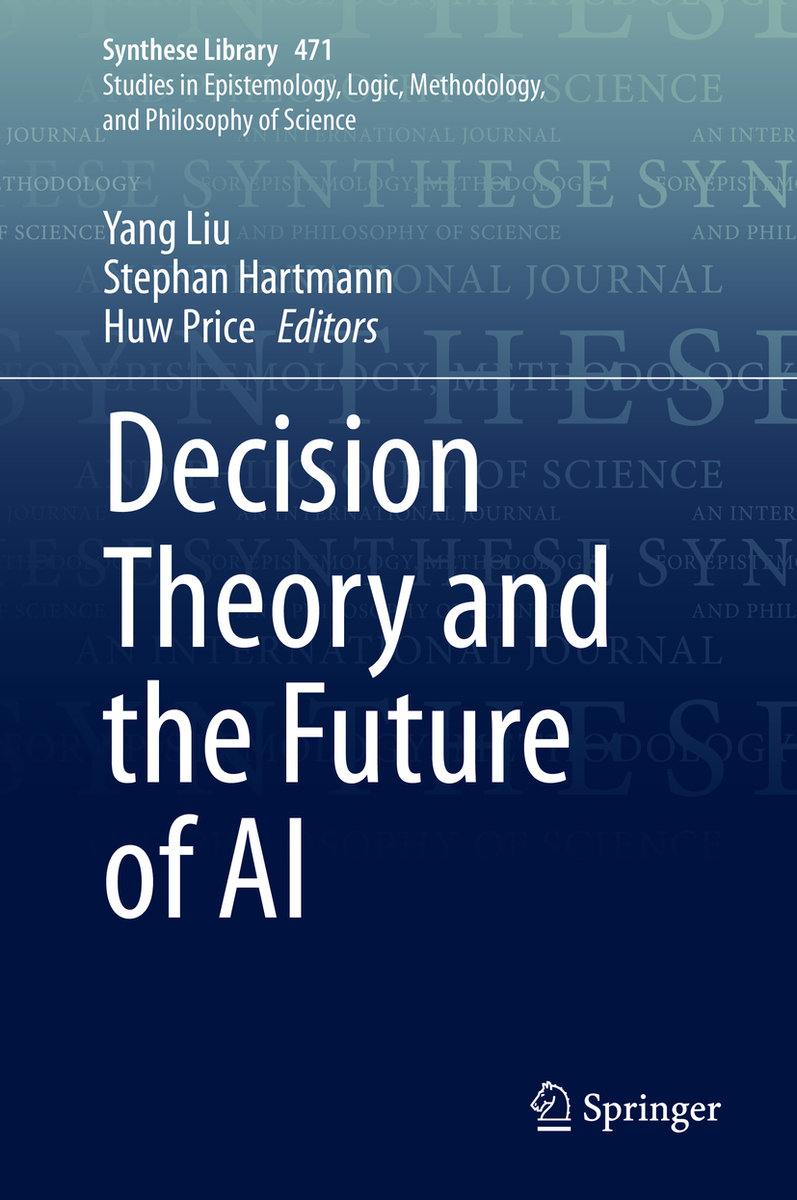This book appeals to students, researchers and professionals working in philosophy and related fields on decision theory applied to artificial intelligence. These chapters stem from the topical conference series, 'Decision Theory and the Future of AI' which began in 2017 as a collaboration between the Leverhulme Centre for the Future of Intelligence (CFI) and the Centre for the Study of Existential Risk (CSER) at Cambridge, and the Munich Center for Mathematical Philosophy (MCMP) at LMU Munich. The range of topics, and even more so the range of authors and their home disciplines and affiliations, are a tribute to the richness of the territory, both in intellectual and in community-building terms.
Previously published in Synthese Volume 198, supplement issue 27, November 2021
Chapter Approval-directed agency and the decision theory of Newcomb-like problems is available open access under a Creative CommonsAttribution 4.0 International License via link.springer.com.



